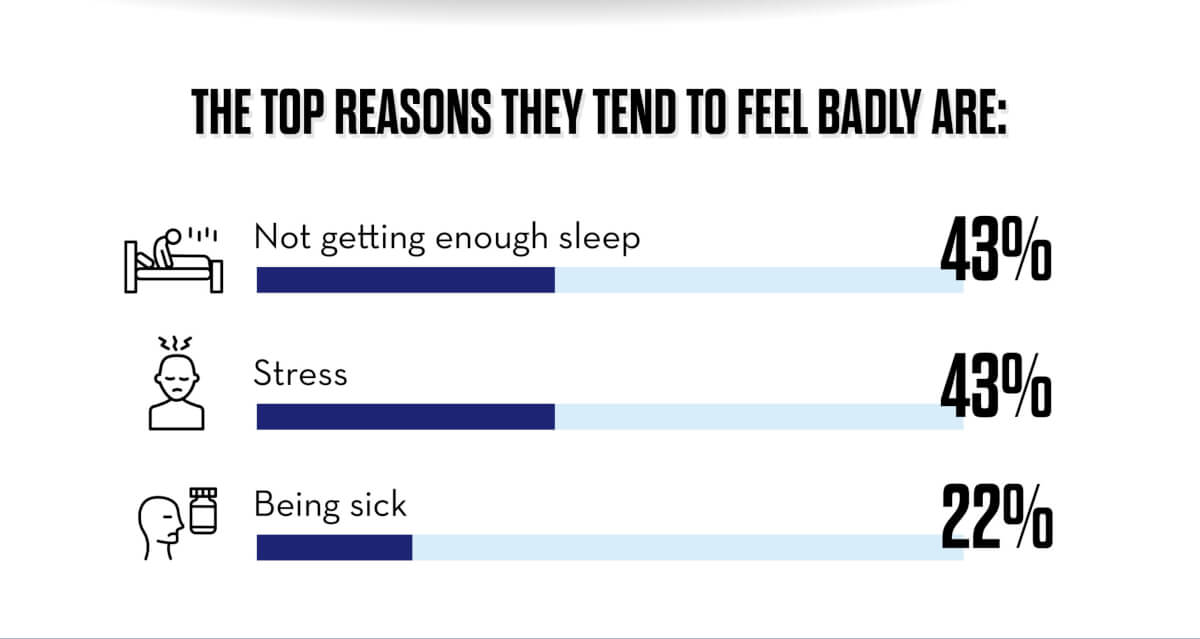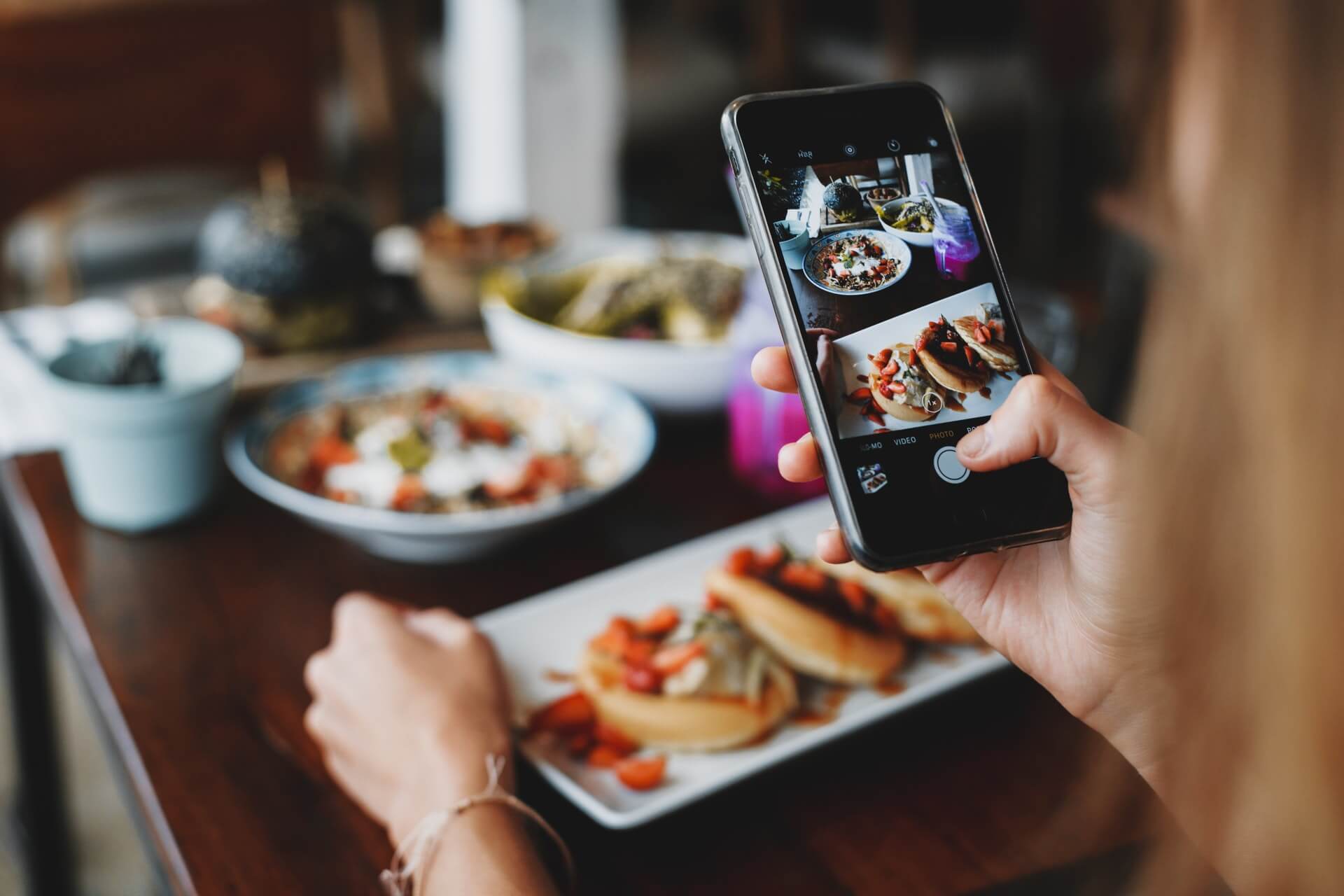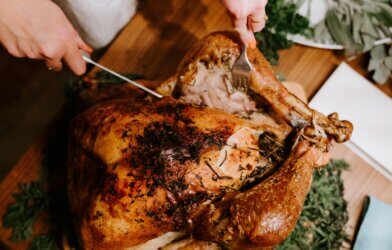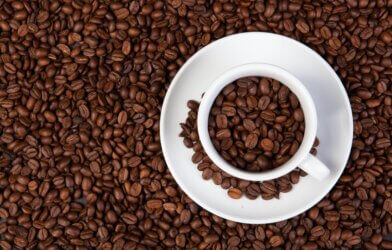NEW YORK — Apparently, you feel what you eat — a new survey finds 93 percent of Americans feel a “physical impact” from what they consume, and many end up feeling tired. Talk about your food coma.
The poll of 2,000 adults shows many either feel tired (54%), frustrated (22%), or even sad (17%) by the time their day is done, and many point to their diet as the cause. Overall, 20 percent report that their diets were “very healthy,” while 16 percent are willing to admit it was unhealthy. One in five feel like their diet failed to meet all of their nutritional needs.
Nearly one in four women (23%) are especially concerned that their diet didn’t meet their needs, compared to just 13 percent of men who felt the same way. One in five Americans say they don’t even have the slightest idea where their food comes from.
Commissioned by Daily Harvest and conducted by OnePoll, the study finds 18 percent are unaware of the origins of their weekly groceries and a quarter (24%) “rarely” or “never” inspect the nutritional labels of the groceries they purchase.

Only 18 percent will always examine the nutritional labels of what foods they buy, and 47 percent have come across ingredients they didn’t recognize on their favorite foods. Gen Z seems to be the most savvy when it comes to examining the labels of their favorite foods (75%), while seniors over the age of 78 and millennials are the least likely to look before they eat (27% and 23%, respectively).
Many admit they would feel more motivated to purchase sustainably sourced food more often if it’s healthier for them to eat (48%), can improve their heart health (32%), or help them manage their weight (26%).
“By examining this data, we can tell that there’s a persistent problem where people are coming across foods that involve ingredients or origins that aren’t familiar to them, which is then impacting how they feel at the end of the day,” says spokesperson Carolina Schneider, MS, RD, Daily Harvest’s nutrition advisor, in a statement. “That’s something no one should have to worry about when their health is on the line.”
The survey also looks at how many are receiving their health and wellness information. While 42 percent still rely on their doctor as their primary source of health trends, a third instead turn their sights to either social media (35%) or their family and friends (33%).
Those who use social media for their health info claim the best platforms to use are Facebook (71%), Instagram (44%), and of course, TikTok (41%). Only a third believe social media has had a positive impact on how they view their health.

More than a quarter (28%) also credit social media for having the biggest impact on the popularity of GLP-1 medications — drugs intended for use in diabetes patients but have found an off-label use for weight loss. Over one-third (37%) say they’d be willing to try a GLP-1 medication to lose weight, with millennials as the most likely to try the new medications to lose weight (48%) and seniors over the age of 59 the least likely (66%).
Gen Z also seems to be in favor of the new medications (44%) but are willing to do more research on the meds beforehand than millennials (78% compared to 75%). The new medications are also more appealing to those with self-described “very healthy” diets than those who didn’t (53% compared to 37% who admit to not having healthy diets).
A larger percentage say they’d stay away from it (45%), citing their hesitations as being unsure about the long-term effects of GLP-1s (42%), not having a medical need for them (35%), or not being able to afford them (23%).
“It’s clear that people have a healthy amount of caution around these new medications,” continues Carolina. “It’s all about taking the appropriate steps and understanding whether this is the best course of action for a person. People want to know what these medications are, what they can offer them, and — most importantly — the necessity of having a healthy diet to accompany their use.”
Survey methodology:
This random double-opt-in survey of 2,000 general population Americans was commissioned by Daily Harvest between Jan 2 and Jan 4, 2024. It was conducted by market research company OnePoll, whose team members are members of the Market Research Society and have corporate membership to the American Association for Public Opinion Research (AAPOR) and the European Society for Opinion and Marketing Research (ESOMAR).




Lennon? Hendrix? No clue.